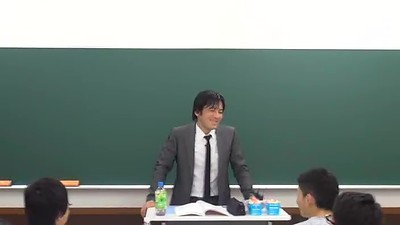
英検1級取得者によるオンライン個別指導のプロ
英語パーソナルジム HIET(ヒート)/ High Intensity English Training
- お電話での
お問い合わせ - 090-3825-5237
コラム
英文記事を読む:グローバリズムの是非
2023年11月9日 公開 / 2023年12月2日更新
今回はグローバリズムに関する英文記事を読みます。
本トピックは英検(準)1級ライティング・2次面接
で出題が予想されます。
予め論点整理しておいてください。
Has globalization benefited Japanese society?
Globalization has had both positive and negative effects on Japanese society, and its impact can vary depending on the perspective and the specific aspect of society under consideration. Here are some of the key ways in which globalization has influenced Japanese society:
Positive Effects:
Economic Growth:
Globalization has significantly contributed to Japan's economic growth. It has allowed Japanese companies to expand their markets and become major players in the global economy. Exports of Japanese products, including automobiles, electronics, and machinery, have been a driving force behind the country's economic success.
Technological Advancements:
Globalization has facilitated the flow of information and technology, enabling Japan to stay at the forefront of technological innovation. Japanese companies have been able to collaborate with global partners and access cutting-edge technology, which has fueled advancements in various industries.
Cultural Exchange:
Globalization has led to greater cultural exchange between Japan and other countries. Japanese culture, including anime, manga, and traditional arts, has gained popularity worldwide. Likewise, Japan has become more open to international influences, leading to a richer cultural landscape.
Educational Opportunities:
Globalization has increased opportunities for Japanese students to study abroad and gain exposure to different educational systems. This has broadened their perspectives and improved their language skills.
Negative Effects:
Economic Competition:
Globalization has exposed Japanese industries to intense global competition, which has led to challenges for certain sectors. For instance, the Japanese agriculture sector faces competition from imported food products, and traditional businesses have had to adapt to survive in a global marketplace.
Work-Life Balance:
The Japanese work culture, characterized by long working hours and limited work-life balance, has been exacerbated by globalization in some industries. The pressure to remain competitive globally has contributed to the demanding work environment.
Social and Cultural Changes:
While there have been positive aspects to cultural exchange, there are concerns about the potential erosion of traditional Japanese values and the adoption of more Westernized cultural norms.
Environmental Concerns:
The increased global movement of goods and people has contributed to environmental challenges, including carbon emissions from international travel and shipping, which can impact Japan and the world at large.
In summary, globalization has brought both benefits and challenges to Japanese society. While it has driven economic growth and technological advancement, it has also posed challenges in terms of economic competition, work culture, and cultural changes. The net impact on Japanese society depends on how these advantages and disadvantages are managed and balanced by policymakers and society at large.
- globalization - グローバリゼーション
- economic growth - 経済成長
- technological advancements - 技術革新
- cultural exchange - 文化交流
- educational opportunities - 教育機会
- negative effects - 負の影響
- economic competition - 経済競争
- work-life balance - 仕事と生活の調和
- social and cultural changes - 社会と文化の変化
- environmental concerns - 環境への懸念
グローバリゼーションは日本社会に対して肯定的な面と否定的な面の両方の影響を持っており、その影響は視点や検討対象の社会の特定の側面によって異なることがあります。以下は、グローバリゼーションが日本社会に影響を与えた主要な方法のいくつかです。
肯定的な影響:
経済成長:
グローバリゼーションは日本の経済成長に大きく貢献しています。これにより、日本企業は市場を拡大し、世界経済の主要なプレイヤーとなることができました。自動車、電子機器、機械などの日本製品の輸出は、国の経済成功の原動力となっています。
技術の進歩:
グローバリゼーションは情報と技術の流れを容易にし、日本が技術革新の最前線にとどまることを可能にしました。日本企業は国際的なパートナーと協力し、先端技術にアクセスすることができ、さまざまな産業での進歩を促しています。
文化交流:
グローバリゼーションは日本と他の国との間でより多くの文化交流をもたらしました。アニメ、マンガ、伝統芸術など、日本文化が世界中で人気を博しています。同様に、日本は国際的な影響を受け入れるようになり、より豊かな文化的風景が広がっています。
教育の機会:
グローバリゼーションは日本の学生に留学の機会を増やし、異なる教育システムに触れる機会を提供しています。これにより、彼らの視野が広がり、言語スキルが向上しています。
否定的な影響:
経済競争:
グローバリゼーションは日本の産業を激しい国際競争にさらしており、特定のセクターに課題をもたらしています。たとえば、日本の農業セクターは輸入食品からの競争に直面しており、伝統的なビジネスはグローバルな市場で生き残るために適応せざるを得ない状況です。
仕事と生活のバランス:
長時間労働と仕事と生活のバランスのとれていない日本の労働文化は、グローバリゼーションによって一部の産業で悪化しています。国際競争力を維持する圧力が、過酷な労働環境に寄与しています。
社会と文化の変化:
文化交流には肯定的な側面もありますが、伝統的な日本の価値観の浸食や西洋化した文化規範の採用についての懸念があります。
環境への懸念:
国際的な移動や貨物の増加は、国際旅行や輸送からの二酸化炭素排出など、環境上の課題に寄与しています。これは日本と世界全体に影響を与える可能性があります。
まとめると、グローバリゼーションは日本社会に利益と課題の両方をもたらしました。経済成長と技術の進歩を推進する一方、経済競争、労働文化、文化の変化などの課題も引き起こしました。日本社会への純な影響は、これらの利点と欠点が政策立案者や社会全体によってどのように管理され、バランスがとられるかに依存しています。
政治と経済はどれだけ分けられるか?
How Far Can Politics, Economy Be Separated?
The Yomiuri Shimbun
November 3, 2023
The relationship between politics and economy is not so simple that it can be explained just by referring to what is known as “the separation of politics and economy,” even during periods of peace without countries at war nor international strife. Countries’ political and economic dynamics are driven by their people’s discontent with the prevailing state of things and anxiety about the future. As such, there always are factors that are prone to trigger conflicts of interest between countries.
The more countries become friendly to and dependent on each other in terms of ideological alignment or trade expansion, the more they become susceptible to doing harm to each other, as in the hedgehog’s dilemma. The border conflict of 1969 between China and the then Soviet Union and Japan-U.S. trade frictions in the 1980s, for example, show how fragile bonds between even friendly countries are.
In liberal democracies, public sentiment materially influences politics. When outward flows of advanced technologies grow to the extent that they threaten not only the domestic labor market, but also the rate of self-sufficiency in food and energy supplies and national security, the public has to choose between prioritizing its nation’s economic interests and national security.
Britain’s Brexit vote to quit the European Union and the election of Donald Trump as president of the United States can be said to have reflected each population’s political decisions, encouraged by anti-globalism movements, to put a brake on the policy of accentuating the pursuit of economic benefits. The COVID-19 pandemic, which upended our lives in recent years, and Russia’s invasion of Ukraine have helped sharpen criticism of the consequences of economic globalism that optimistically takes “the separation of politics and economy” for granted.
Trump, citing the need to safeguard U.S. national security and domestic employment, implemented protectionist trade measures in rapid succession, including raising tariffs on imports from China and other countries. He was criticized for employing an anachronistic mercantilist trade policy. His trade policy approach was similar to what 18th-century European countries sought as their national goals for maximizing trade surpluses with territories under their colonial rule.
Warning by Adam Smith
There was an era when there was a consensus that bolstering foreign trade was the best means to promote nation-to-nation and people-to-people exchanges. Adam Smith, in his book “The Wealth of Nations,” however, severely criticized the mercantile system for encouraging the accumulation of gold and silver by amassing trade surpluses with a combination of export subsidies and import tariffs.
There is no certainty that foreign trade would raise domestic employment, while it enables privileged merchants and large manufacturers to grossly enrich themselves, he said. As a result, he contended, foreign trade would create conflict and animosity between the rich and people on the street who were forced to buy imported goods at prices inflated due to high tariffs.
Smith was exceptionally insightful in that he warned that growth in foreign trade would result in economic inequality at home. He argued further that although foreign trade could potentially serve as “a bond of union and friendship” among nations, it would spawn a remote cause of war because a nation would be able to prosper only at the expense of its trading partners, a situation that would make them jealous.
About 250 years on, the 21st-century global economy emerged with a new form with China integrated into it. China, for its part, has subsequently become a trading powerhouse to be seen, in Smith’s words, as a “source of discord and animosity.”
The political circumstances and technological levels of products shipped abroad nowadays are different from those in Smith’s times. Nonetheless, there is one aspect that is common to the two otherwise separate periods — the awareness among people in both periods that “the separation of politics and economy” is problematic, considering that the evolution of globalization would lead to inequality and political instability at home.
In fact, the pandemic caused trade contraction in value terms in the short run, slowing the movement of capital and people. This does not mean, however, that the historic economic transition that has been taking place continuously, albeit at a slow pace, is over.
In 2021, a year after the worldwide turmoil caused by COVID-19, global trade recovered.
Manufacturers of communications and precision equipment and automobiles, which suffered from semiconductor shortages due to pandemic-triggered supply chain disruptions, posted a quick recovery in exports in value terms. Likewise, energy suppliers saw their exports in value terms rebound by large margins in 2021 and 2022 thanks to sharp price rises.
Global trade statistics show that the pandemic caused greater damage to trade in services such as tourism and transportation than trade in goods. However, in the first quarter of 2022, the former’s trade ballooned by nearly 90% from a year earlier.
Though non-political shocks such as the COVID-19 pandemic indiscriminately affect all parts of the world and temporarily knock the economy off course, post-shock recovery tends to be considerably quick. In comparison, the impact on global trade of lingering political rifts and wars occasionally threatens to seriously alter the world’s economic structure itself.
The Russian invasion of Ukraine that began in February 2022 has prompted a number of countries to rush to cut off trade with unfriendly ones as a national security consideration. The United States, for example, hardened its policy of delaying the pace of China’s technological advance by regulating China-bound shipments of dual-use goods that can be used for both commercial and military applications. Many countries across the world are now changing their trade policies, not only to protect their advanced technologies but also to secure energy and food imports.
Exclusion of China
After the Trump administration in 2018 imposed additional tariffs on imports from China, U.S.-China trade shrank in the short run, but, at the same time, the higher import duty increased upward pressure on inflation in the United States. The current U.S. administration of President Joe Biden was consequently compelled to choose between protecting workers in the U.S. manufacturing sector and bringing down inflation.
Washington has seen imports from China revert to growth over the past year with the United States registering an all-time high bilateral trade deficit.
From a national security perspective, the Biden administration now gives more weight to the issue of how it should regulate China-bound exports of dual-use goods, such as chips, that can be used for military purposes as well, than to protecting jobs within the United States from being lost to competitive imports from China.
In 2022, the World Trade Organization’s dispute settlement panel disapproved of Washington’s justification of invoking the abovementioned tariffs on imports from China, ruling that the U.S. action had not been “taken in time of war or other emergency in international relations” as stipulated in the code of global trade governance. In a related development, the Biden administration enacted the CHIPS and Science Act, including government subsidies to attract foreign semiconductor manufacturers’ investment in the United States. Lately, it is focusing on entering into international trade agreements aimed at the exclusion of China, stepping up measures to create a robust international network of supply chains and prevent Beijing’s military conversion of advanced technologies.
In a nutshell, the United States, with China in mind, has been reinforcing its political and trade policy approaches with a view to establishing a global cooperation framework that prioritizes trade and a network of supply chains with its allies and partner economies with a “friendshoring” mindset.
Economics can offer a clear explanation about benefits from free trade and globalization. Yet how should people in a country that is economically prosperous thanks to free trade deal with a situation in which they encounter troubling difficulties, including the worsening of income inequality within it? Without due scrutiny on this particular issue, the future of free and multilateral trade cannot be so bright.
政治と経済の関係は、戦争のない平和な時期であっても、「政治と経済の分離」として知られているものを参照するだけで説明できるほど単純ではありません。国の政治と経済のダイナミクスは、人々が現状に不満を抱き、将来に不安を感じることによって推進されます。したがって、国々間で利益の対立を引き起こす要因は常に存在します。
国々がイデオロギーの一致や貿易の拡大において友好的で依存的になればなるほど、ハリネズミのジレンマのようにお互いに害を与える傾向が高まります。例えば、1969年の中国と当時のソビエト連邦の国境紛争や、1980年代の日本とアメリカの貿易摩擦は、友好的な国々間の絆がどれほど脆弱であるかを示しています。
自由民主主義国では、国民の意識が政治に実質的に影響を与えます。先進技術の外向き流れが、国内の労働市場だけでなく、食料とエネルギー供給の自己充足率と国家安全保障の割合まで脅かすようになると、国民は国の経済利益と国家安全保障の優先順位を選ばなければなりません。
イギリスのEU離脱投票とアメリカのドナルド・トランプ大統領の選出は、経済利益の追求を強調する政策を抑制するために反グローバリズム運動に励まされた各国の政治的決定を反映していると言えるでしょう。近年、私たちの生活を根底から変えたCOVID-19パンデミックとロシアのウクライナ侵攻は、「政治と経済の分離」を当然のこととする経済グローバリズムの結果に対する批判を鋭化させました。
トランプは、米国の国家安全保障と国内雇用を守る必要性を主張し、中国や他国からの輸入に関税を引き上げるなどの保護主義的な貿易措置を次々に実施しました。彼は古典的な重商主義の貿易政策を採用していると非難されました。彼の貿易政策アプローチは、18世紀のヨーロッパ諸国が植民地支配下の領土との貿易黒字を最大化するために求めた国家の目標と類似しています。
アダム・スミスの警告
かつて、外国との貿易を強化することが国から国へ、人から人への交流を促進する最良の手段であるという合意がありました。しかし、アダム・スミスは著書「国富論」で、貿易黒字を輸出補助金と輸入関税の組み合わせで積み上げて金と銀を蓄積する重商主義体制を厳しく批判しました。
彼は、外国との貿易が国内雇用を増加させる確実性はないと述べましたが、これにより特権を持つ商人と大手製造業者は大幅に富を蓄えることができ、高関税によって価格が高騰した輸入品を買わざるを得ない通りの人々と富裕層の間に対立と敵意を生じるだろうと主張しました。
スミスは、外国との貿易の成長が国内での経済的不平等を引き起こすだろうと警告しました。さらに、外国との貿易が国々間の「結びつきと友情の絆」を生む可能性があるとしても、国が貿易相手に対して嫉妬する状況を作り出すため、戦争の遠因を生むだろうとも論じました。
約250年後、21世紀のグローバル経済は新しい形態で現れ、中国がその一部に統合されました。中国はその一方で、スミスの言葉で言うところの「不和と敵意の源」と見なされるほどの貿易の強国になりました。
現在、外国へ輸出される製品の政治的状況と技術レベルは、スミスの時代とは異なります。それにもかかわらず、2つの異なる時代に共通する側面が1つあります。それは、グローバリゼーションの進化が国内の不平等と政治的不安定を引き起こす可能性を考えると、「政治と経済の分離」は問題があると人々が認識していることです。
実際、パンデミックは、短期的には価値の面で貿易を収縮させ、資本と人の移動を遅くしました。しかし、これは続いている経済的転換が終わったことを意味するものではありません。
COVID-19によって引き起こされた世界的な混乱から1年後の2021年、世界の貿易は回復しました。
通信および精密機器および自動車の製造業者は、パンデミックによるサプライチェーンの混乱による半導体不足から、価値面での輸出が急速に回復しました。同様に、エネルギー供給業者も価格の急騰により、2021年および2022年において価値面での輸出が大幅に回復しました。
グローバル貿易統計によれば、パンデミックは観光や交通などのサービス貿易に対する被害が物品貿易に比べて大きかった。しかし、2022年の第1四半期には、前年からほぼ90%もの増加がありました。
非政治的な衝撃、例えばCOVID-19パンデミックは、一時的に世界中のすべての地域に均等に影響を与え、経済を一時的に狂わせる傾向があります。一方、政治的な亀裂や戦争の持続的な影響は、時折、世界の経済構造自体を深刻に変える脅威となり得ます。
2022年2月に始まったウクライナへのロシアの侵攻は、多くの国々に対して国家安全保障の観点から友好的でない国々との貿易を中止するよう促しました。例えば、アメリカは、中国向けの二用途品の出荷を規制することで、中国の技術進歩のペースを遅らせる方針を強化しました。世界中の多くの国々は、進化した技術を保護するだけでなく、エネルギーと食料の輸入を確保するために貿易政策を変えています。
中国の除外
2018年にトランプ政権が中国からの輸入に追加の関税を課した後、アメリカと中国の貿易は短期間に縮小しましたが、同時に高い関税はアメリカのインフレに上昇圧力をかけました。したがって、ジョー・バイデン大統領の現政権は、アメリカの製造業の雇用を保護することと、競争相手からの輸入によるアメリカ国内の雇用機会を減らすこととの間で選択を迫られました。
ワシントンでは、中国向けの二用途品の輸出を規制する方法について、アメリカ国内での雇用機会を保護することよりも、軍事目的にも使用できるチップなどの二用途品の輸出規制に重きを置くようになりました。2022年、世界貿易機関の紛争解決パネルは、中国からの輸入に対する上記の関税の正当性を否定し、国際貿易規制の規定に従い、「戦争または国際関係の緊急事態の時に採用されたものではない」と裁定しました。関連する動きとして、バイデン政権は、外国の半導体メーカーのアメリカへの投資を引き寄せるための政府補助金を含むCHIPS and Science Actを制定しました。最近では、中国を除外する国際貿易協定を締結し、供給チェーンの強固な国際ネットワークを構築し、北京の先進技術の軍事転用を防ぐための措置を強化しています。
要するに、アメリカは中国を念頭に、貿易と「友好」の観点で同盟国とパートナー経済との間で優先的な取引および供給チェーンネットワークを確立するためのグローバル協力フレームワークを構築する政治と貿易政策を強化しています。
経済学は自由貿易とグローバリゼーションからの利益について明確な説明を提供できます。しかし、自由貿易によって経済的に繁栄している国の人々が所得格差の悪化を含む困難な状況に直面する場合、どのように対処すべきでしょうか?この特定の問題に対する適切な検討がなければ、自由で多国間の貿易の未来はあまり明るくありません。
- relationship・関係
- politics・政治
- economy・経済
- explained・説明
- separation・分離
- peace・平和
- war・戦争
- international strife・国際的な諍い
- dynamics・ダイナミクス
- people's discontent・人々の不満
- prevailing・現在の
- anxiety・不安
- factors・要因
- prone・傾向がある
- conflicts of interest・利害の衝突
- friendly・友好的な
- dependent on・依存する
- ideological alignment・イデオロギーの一致
- trade expansion・貿易の拡大
- susceptible to・影響を受けやすい
- hedgehog's dilemma・ハリネズミのジレンマ
- border conflict・国境紛争
- trade frictions・貿易摩擦
- liberal democracies・自由主義民主国
- public sentiment・世論
- advanced technologies・先進技術
- self-sufficiency・自給自足
- economic interests・経済利益
- national security・国家安全保障
- Brexit vote・ブレグジット投票
- economic benefits・経済的利益
- COVID-19 pandemic・COVID-19パンデミック
- upended・転倒させる
- consequences・結果
- protectionist trade measures・保護貿易措置
- raising tariffs・関税を引き上げる
- mercantilist trade policy・重商主義の貿易政策
- consensus・一致
- bolstering・強化
- foreign trade・外国貿易
- promote・促進する
- nation-to-nation・国から国へ
- people-to-people・人から人へ
- exchanges・交流
- severely criticized・厳しく批判した
- accumulation・蓄積
- gold and silver・金と銀
- export subsidies・輸出補助金
- import tariffs・輸入関税
- certainty・確実性
- domestic employment・国内の雇用
- privileged merchants・特権を持つ商人
- large manufacturers・大手メーカー
- grossly enrich・莫大な利益を上げる
- conflict・対立
- animosity・敵意
- economic inequality・経済的不平等
- bond of union・結束の絆
- prosperity・繁栄
- remote cause・遠因
- pandemic・パンデミック
- trade contraction・貿易縮小
- capital・資本
- supply chain disruptions・供給チェーンの混乱
- rebound・回復
- exports・輸出
- energy suppliers・エネルギー供給業者
- value terms・金額で
- trade in services・サービスの貿易
- tourism・観光
- transportation・交通
- post-shock recovery・ショック後の回復
- political rifts・政治的な亀裂
- alter・変える
- national security consideration・国家安全保障の検討
- additional tariffs・追加関税
- upward pressure・上方圧力
- inflation・インフレーション
- manufacturing sector・製造業セクター
- imports・輸入品
- trade deficit・貿易赤字
- national security perspective・国家安全保障の観点
- dual-use goods・二重使用品
- military applications・軍事用途
- dispute settlement panel・紛争解決パネル
- global trade governance・グローバル貿易統治
- government subsidies・政府補助金
- semiconductor manufacturers・半導体メーカー
- international trade agreements・国際貿易協定
- exclusion of China・中国の排除
- global cooperation framework・グローバル協力フレームワーク
- trade policies・貿易政策
- network of supply chains・供給チェーンのネットワーク
- friendshoring・フレンドショアリング
- free trade・自由貿易
- multilateral trade・多国間貿易
- income inequality・所得格差
- due scrutiny・十分な検討
- bright・明るい
関連するコラム
- 【発達障害 クラスに3人】っていう前に「医学的定義」を示すべき 我、教育の端くれ専門家として想う 2023-12-26
- 英文記事を読む:日本のGDP ドイツに抜かれる 2023-11-03
- 英文記事を読む:大阪万博 ★英国 Fianancial Times がツッコミ入れる ★準備の見世物ショー 2023-12-22
- 英文記事を読む:★ 英単語は何個必要か ★ ケンブリッジ大研究 2024-03-06
- 英文記事を読む:国家支援500億が水の泡 三菱 ジェット機開発中止 累積赤字8000億 2023-12-16
コラムのテーマ一覧
カテゴリから記事を探す
TEX 二井原プロへの
お問い合わせ
マイベストプロを見た
と言うとスムーズです
勧誘を目的とした営業行為の上記電話番号によるお問合せはお断りしております。









